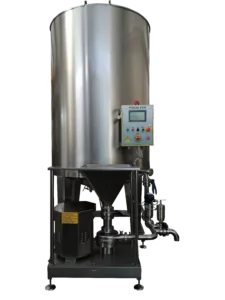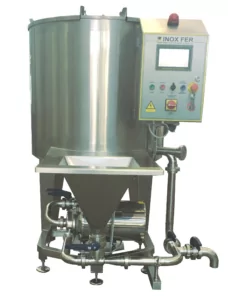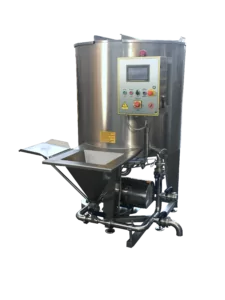Sommario
Tank insulation represents the reduction of heat flow exchanged between two zones with different temperatures and is one of the most appropriate choices for energy savings.
Tanks are vessel used to collect liquids, gas or other substances.
They can be found in various sectors, including the food and chemical industry and many others.
Considering the dimensions of these elements the dispersion of energy is very high as well the request of maintenance.
How does the thermal insulation work?
The insulation is usually performed using insulating materials, such as rock wool, glass wool, closed cell expanded elastomer sheaths or ceramic fibre.
To reduce the temperature transmission between tank and environment, the insulating material is added around the tank.
This technique creates a thermal insulation layer that helps maintain the internal temperature and reduce losses resulting in energy savings.
5 thermal insulation advantages in food production
In the food production sector, thermal insulation takes on crucial importance, especially for companies that have to handle and process sauces, jams and other similar products.
Following the advantages.
Temperature and product quality checking
To produce sauces, jams and food products, it is essential to maintain a constant temperature during the process. The insulation helps to keep an even temperature inside the tank, avoiding surges that could compromise the final product quality. A stable temperature ensures the food processes are precisely, preventing taste alterations, consistency or nutritional properties.
Energy efficiency and economic savings
Food production is a process that requires a high energy consumption, specially during the heating and cooling steps. Insulation significantly reduces heat or cold losses, allowing the desired temperature to be maintained with less energy consumption. This translates into energy cost savings and greater economic sustainability for the company.
Tank protection and equipment maintenance
In the food industry the tanks are subjected to intense and varied using conditions.
Thermal insulation maintains temperature and protect tanks from environmental and thermal stresses, increase the operative duration.
In production areas where corrosions and wear can be problematic, the insulation helps to prevent structural damages and ensure a long equipment life.
Condensation reduction and more hygiene
Condensation can pose a hygiene risk by creating environments conducive to the growth of bacteria and mold.
Insulation minimizes temperature difference between external surface and surrounding environment, reducing the formation of condensation.
This contributes to maintain high level of cleanliness and food safety, essential for product quality and compliance with industry regulations.
Operational safety
A food production environment, the operator safety is essential.
The insulation helps maintain safe external temperature and prevent risks associated with excessive temperature.
Also, by reducing heat losses, overheating of surrounding areas is prevented, contributing to a safer and more comfortable working environment.
Choosing insulated food processing equipment to ensure quality
Thermal insulation is a key solution for food companies wishing to optimize the quality of their products, improve energy efficiency and ensure a safe and hygiene working environment.
Investing in high quality insulation materials and correct application of insulation represents an important step toward more efficient and sustainable food production.
Are you looking for efficient machinery customized to your production unit?
Tell your needs and we can realize an insulated and reliable equipment



